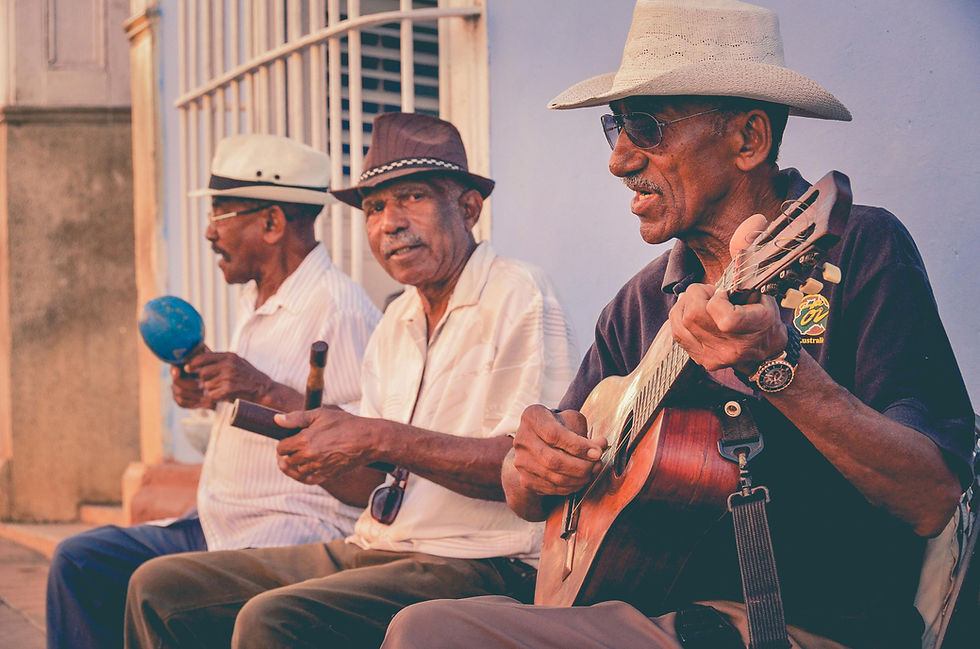#SOSCuba
- Anna Galaktionov
- Oct 20, 2021
- 3 min read
Updated: Jan 5, 2024
By Amanda Gonzalez Garcia
“No más mentiras...Mi pueblo pide libertad, no más doctrinas...Ya no gritemos patria o muerte sino patria y vida...Y empezar a construir lo que soñamos...Lo que destruyeron con sus manos.” - Excerpt from the song "Patria y Vida" by Descemer Bueno, Gente De Zona, and Yotuel

This anthem rang in the streets of Miami this summer. In Cuba, one does not have the right to protest or stand up for what they believe in. In Cuba, elections have not occurred in the last 62 years under the communist regime. In Cuba, the people want freedom.
#SOSCuba became a trending hashtag in July 2021, as the Cuban people risked their lives protesting on the streets. According to the Wall Street Journal, under a communist regime, Cubans have been silenced and forced to live with discrimination, food shortages, and understaffed hospitals.
These demonstrations emerged in response to a shortage of supplies during the COVID-19 pandemic. In San Antonio de los Baños and Palma Soriano, the healthcare system collapsed when faced with a surge in COVID-19 infections. Medicines became dangerously sparse and reports of people dying flooded social media.
Artist and activist Karina Febles has been involved with protests taking place in Miami- Dade. As an active voice for those on the island and a first-generation Cuban American, Febles spent her 26th birthday in July working to spread the Cuban message. She noted that everyone was supportive of each other at the protests.
“[The protests] represented the essence of the Cuban spirit, seeing my generation be good to one another and extend hospitality like our culture does,” said Febles.
Beyond protesting, citizens across the globe started connecting with the Cuban people to get a sense of their needs.
Laymis Alvarez, a woman with family in Havana, explained to NBC6 that it is not easy to get items to the island, as there is a sense that they may get lost in transit and never get to your family. This is because under the communist regime, there is no order.
According to the Committee to Protect Journalists, most recently, U.S. journalists were injured and assaulted by Cuban police. A correspondent from the Associated Press by the name of Ramón Espinosa was beaten on the day that the protests emerged on July 11.

In fact, as of Sept. 13, 982 Cuban citizens have disappeared or are detained by the Cuban government and perhaps more that have failed to be reported, according to the Center for Incident Reports of the Foundation for Pan-American Democracy (FDP).
Many families in the U.S. have had difficulties or have waited longer than usual to get in contact with those on the island. On the island, citizens have been stripped away from their homes for simply being seen on the streets in support of the movement. Families have relied heavily on social media to share their voice and call on others to share missing persons and so forth.
While these issues are happening in Cuba, Barry students are being affected.
Senior history major Alejandra Ramos was born in the Cuban town Mata. In November 2009, Ramos migrated to the U.S. with her brother and parents. She still has close relatives in Cuba.
“My family members in Cuba have not been able to so much as tell me what their situation is really like out of fear that they are being monitored by the government,” said Ramos. “This is incredibly frustrating and infuriating.”

Despite her frustration, Ramos feels a sense of pride seeing the worldwide social media support extended to people on the island.
“[Social media] has helped create the perfect storm in a way by allowing people to see the atrocities that are taking place and share them with the outside world,” said Ramos.
“It has also emboldened the Cuban people as they can now share the truth with the world and know that at the very least, they have our support.”






Comments